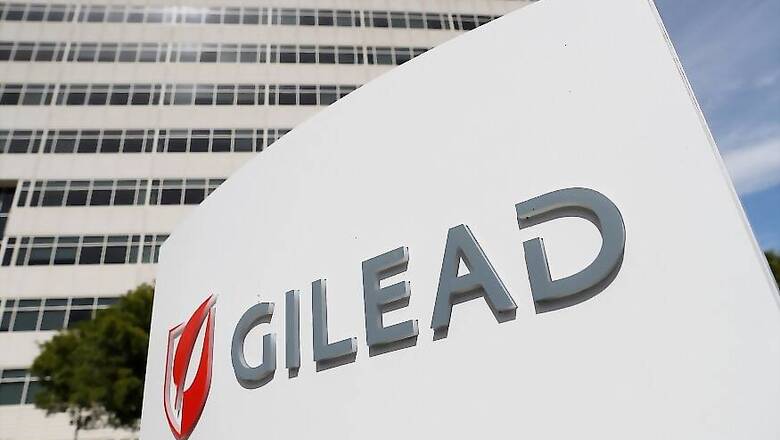
views
Gilead Sciences , which manufactures remdesivir, is focused on making the experimental coronavirus drug accessible and affordable to as many people as possible once it is approved, Chief Executive Officer Daniel O'Day said on Friday.
Interest in remdesivir has been high as there are no approved treatments or preventive vaccines yet for COVID-19, and early U.S. government trial results on Wednesday showed the drug helped patients recover more quickly from the illness caused by the new coronavirus than patients given a placebo.
Gilead has already said it will donate the first 1.5 million doses of remdesivir and O'Day told NBC's "Today" show that the company understood its responsibility to make a difference during the coronavirus pandemic.
"I can assure you that we're all focused on making sure that we make this accessible and affordable to patients around the globe," he said.
He said there had been "terrific" collaboration with the U.S. Food and Drug Administration and expects action soon. "We're moving very quickly with the FDA," he said.
The FDA has said it was in talks with Gilead about making remdesivir available to patients as soon as possible.
The drugmaker, which reported second-quarter earnings on Thursday, said it would work with international partners to expand production of the potential COVID-19 treatment.
On a conference call to discuss Gilead's earnings, the company declined to answer questions about whether it plans to eventually profit from the COVID-19 treatment rather than just donate the medicine.
Gilead's shares were down 5.6% in early trading on Friday. The stock has risen nearly 30% in the year to date in response to the drug's prospects as a treatment for COVID-19.
Wall Street analysts, however, expressed doubts about the treatment's potential to bring in profits for the antiviral drugmaker.
At least three brokerages downgraded Gilead on Friday after its earnings report.
RBC Capital Markets analyst Brain Abrahams said Gilead's management remained vague on their plans to recoup the production, distribution, and trial costs for the treatment, citing a balance between access and sustainability.
Abrahams said this might disappoint some and the unpredictability of the pandemic makes modelling its potential impact challenging.


















Comments
0 comment